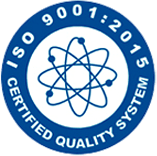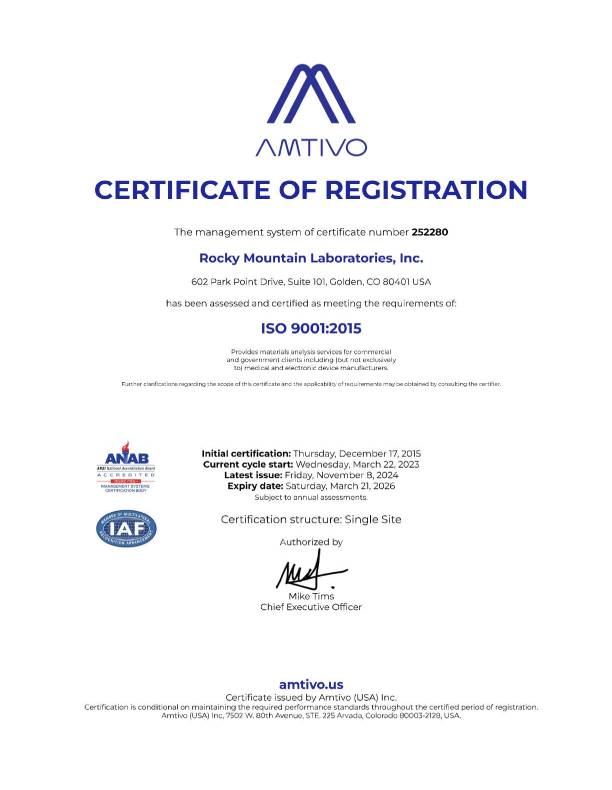At Rocky Mountain Laboratories, we understand the critical role of Fourier Transform Infrared (FTIR) analysis in characterizing ceramics. FTIR spectroscopy is a powerful analytical technique that provides valuable insights into the composition, structure, and properties of ceramic materials.
Applications of FTIR Analysis for Ceramics:
- Chemical Composition Determination: FTIR spectroscopy enables the identification of specific chemical functional groups present in ceramic materials. This information is crucial for understanding the composition of ceramics, which can vary widely based on the manufacturing processes and intended applications.
- Quality Control in Ceramic Production: FTIR analysis plays a pivotal role in quality control during the manufacturing of ceramics. By monitoring the composition and structural integrity, manufacturers can ensure consistency in their products, leading to enhanced performance and reliability.
Methodology of FTIR Analysis for Ceramics:
- Sample Preparation: Proper sample preparation is essential for accurate FTIR analysis. Ceramics should be finely ground and mixed with a suitable matrix for uniformity. Pelletizing or pressing the mixture into a thin film ensures consistent results during spectroscopic analysis.
- Instrumentation: At Rocky Mountain Laboratories, we utilize state-of-the-art FTIR spectrometers equipped with specialized accessories for ceramic analysis.
- Spectral Interpretation: Skilled spectroscopists at our laboratories analyze the obtained spectra to identify characteristic peaks associated with functional groups in ceramics. This information aids in the elucidation of chemical bonds, helping to build a comprehensive profile of the ceramic material.
Benefits of FTIR Analysis for Ceramics:
- Rapid and Non-destructive: FTIR analysis is a non-destructive technique that allows for the rapid characterization of ceramics without altering the integrity of the sample. This is particularly advantageous for industries where sample conservation is crucial.
- Quantitative Analysis: The quantitative nature of FTIR analysis enables precise measurements of chemical concentrations in ceramics. This capability is invaluable for ensuring that ceramics meet specific compositional requirements in various applications.
- Problem-solving and Failure Analysis: In cases of ceramic failure or unexpected performance issues, FTIR analysis can be employed to identify the root cause. This aids in troubleshooting and implementing corrective measures to enhance product quality.
At Rocky Mountain Laboratories, our commitment to excellence in FTIR analysis for ceramics ensures that our clients receive accurate, reliable, and actionable insights into their materials. Whether you are in ceramics manufacturing, research, or quality control, our specialized expertise in FTIR analysis positions us as a trusted partner in your quest for precision and innovation in ceramic materials.



